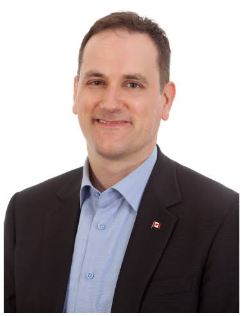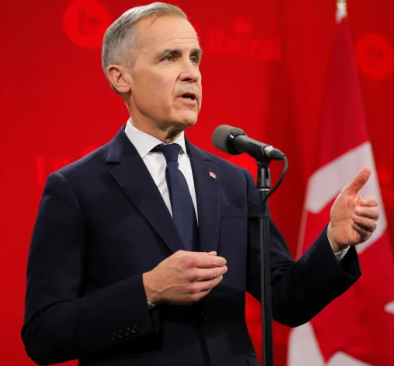Canada Elections
Canada has a parliamentary democracy, which means that the country is governed by a system in which elected representatives make decisions on behalf of the people. The federal government of Canada consists of three branches: the executive branch, the legislative branch, and the judicial branch. Executive Branch: The executive branch is headed by the Prime Minister, who is the head of government and the leader of the political party that has the most seats in the House of Commons. The Prime Minister is responsible for appointing Cabinet ministers who oversee various government departments and agencies. Legislative Branch: The legislative branch is made up of two houses: the House of Commons and the Senate. House of Commons: Members of Parliament (MPs) are elected by Canadian citizens in their respective constituencies to represent them in the House of Commons. The number of seats in the House of Commons is determined by population size, with each electoral district electing one representative. The political party that wins the most seats forms the government, and its leader becomes the Prime Minister. The House of Commons is where laws are introduced, debated, and voted upon. Senate: Senators are appointed by the Governor General on the advice of the Prime Minister. The Senate reviews and suggests amendments to legislation proposed by the House of Commons. Senators hold their positions until the mandatory retirement age of 75. Provincial and Territorial Governments: Canada is also divided into ten provinces and three territories, each with its own government. The provincial and territorial governments have similar structures to the federal government, with a Premier serving as the head of government and a legislative assembly or legislature that enacts laws specific to their jurisdiction.
Election gives all citizens, regardless of wealth, a fair shot to be heard and participate in every step of the democratic process

Upcoming & Fresh Elections
Following is the list of upcoming election(s) in Canada that will be held in near future. You may click on the election name to view detail about the election of your choice. You may also post updates and your comments on these elections
House of Commons
Previous Older Elections
Following is the list of previous election(s) in Canada. You may click on the election name to view detail about the election of your choice. You may also post updates and your comments on these elections

Prediciton by Dan Albas MP
I rarely make predictions, but today Ill make an exception. Within the next five days, I anticipate that Prime Minister Mark Carney will visit the Governor General to request the dissolution of the House of Commons, triggering a federal general election.
Why? The House of Commons is currently prorogued until Monday, March 24. Since Carney is not an elected Member of Parliament, he cannot sit on the House floor as Canadian Prime Ministers traditionally do. This creates a dynamic where opposition MPs can pose critical questions, but Carney would have to rely on Cabinet Ministers to respond on his behalf.
The Liberals are unlikely to allow their Prime Minister to watch from the gallery while key questions go unanswered—especially when calling an election is a viable alternative.
For these reasons, I expect an election writ to be issued in the coming days.
This will be a pivotal moment for Canadians. After nine years under a Liberal Prime Minister, will voters choose continuity, or will they opt for change? The stakes are even higher following U.S. President Donald Trump’s recent remark that he would rather deal with a Liberal than a Conservative government in Canada.
As Canadians prepare to head to the polls, the choices ahead could shape the countrys future in profound ways. - Posted on : 20-March-2025

Canadas Liberals have chosen Carney as their new leader—whats next?
Canada’s ruling Liberal Party has elected Mark Carney to succeed outgoing Prime Minister Justin Trudeau as its leader.
The former Bank of Canada governor secured a decisive victory in the Liberal leadership vote on Sunday, just two months after Trudeau announced his resignation amid mounting pressure over an affordability crisis and a looming trade dispute with the United States. Carney assumes leadership at a time of heightened Canada-US tensions, following President Donald Trump’s imposition of steep tariffs on Canadian goods.
Carney won the leadership race by a wide margin, defeating former Finance Minister Chrystia Freeland, MP Karina Gould, and businessman Frank Baylis.
Despite his extensive experience as an economist and central banker, Carney is not currently a member of Canada’s House of Commons and has never held federal office. Meanwhile, Canada is approaching a federal election, which must take place by October 20 but could be called earlier.
So, what’s next? Al Jazeera breaks down what lies ahead as Carney steps in to lead the party and prepares to become Canada’s next prime minister. - Posted on : 12-March-2025
Canada’s Trudeau calls snap election
Canadian Prime Minister Justin Trudeau, betting that his standing has been improved by his government’s response to the coronavirus pandemic while his main opponent has failed to gain traction with voters, called on Sunday a snap federal election for Sept. 20 in a bid to regain a majority in the House of Commons.
Trudeau, first elected prime minister in 2015, has led the country since October 2019 with a minority government. Winning a majority would mean he would no longer need to rely on opposition parties to advance his agenda and stay in power.
The next fixed election date was October 2023, but a prime minister may at any time request the governor general dissolve Parliament — the step that triggers an election. Trudeau, 49, met Governor General Mary Simon, Queen Elizabeth II’s representative in Canada, on Sunday, and she granted his request.
Speaking to reporters outside Rideau Hall, the official residence of the governor general in Ottawa, Trudeau said Canada is in a “consequential moment,” and he needs a mandate from voters on how to deal with the changes wrought by the pandemic and steer the economic recovery.
“Canadians need to choose how we finish the fight against covid-19 and build back better, from getting the job done on vaccines to having people’s backs all the way to and through the end of this crisis,” Trudeau said. “The decisions that your government makes now will define the future that your children and grandchildren grow up in.” - Posted on : 16-August-2021
Will Canada have an election in the coming months?
Canadian law requires that the government in power will have to call an election by October 16, 2023, but it could be much sooner.
It seems Prime Minister Justin Trudeau is gearing up for a snap election. Media reports suggest Trudeau may call the election within the next one or two weeks and Canadians could head to the polls as soon as September. COVID-19 cases are down, vaccination rates are up, and the prime minister has been handing out funding to various groups across the country. Polls suggest support is on the rise for Trudeau and his Liberal Party. - Posted on : 12-August-2021
Liberals Launch Midnight Sittings
The Liberal government has launched the House of Commons into weeks of late-night sittings until the scheduled end of this Parliament, in an effort to pass as many bills as possible before the session ends ahead of the fall federal election.
The motion to tack on extra hours for MPs to debate government business passed on Tuesday evening, with the opposition parties voting against it. Effective immediately, the sitting hours of the House have been extended to midnight, Mondays through Thursdays until the end of the session, scheduled for June 21. - Posted on : 14-July-2019
Justin Trudeau starts election campaign
Justin trudeau received the kind of welcome in Washington, dc, on June 20th that Canadian prime ministers dream of. President Donald Trump, who a year ago called him "dishonest" and "weak", now saluted him as a "friend" and treated him to lunch at the White House. He promised to help Canada in a diplomatic row with China, provoked in December when Canada arrested a prominent Chinese businesswoman to comply with an American extradition request. Nancy Pelosi, the Democratic Speaker of Americas House of Representatives, said she was optimistic that Congress would eventually ratify a deal, which includes Mexico, to replace the North American Free Trade Agreement (nafta), a Canadian priority. She gave Mr Trudeau a basket of Californian wines, nuts and chocolates. Those were his winnings from their wager over the duel between the Toronto Raptors and the Golden State Warriors in a basketball championship. An auspicious rainbow appeared over Andrews Air Force Base as Mr Trudeaus motorcade arrived for the flight home. - Posted on : 29-June-2019
By-election 2019
A by-election was held on Monday, May 6, 2019. The election result remains unofficial until the Chief Electoral Officer has confirmed the name of the Member of Parliament elected in the constituency. In Nanaimo—Ladysmith constituency of British Columbia Manly, Paul of Green Party of Canada has been elected. - Posted on : 07-May-2019
2019 Canadian Federal Election
The 2019 Canadian federal election (formally the 43rd Canadian general election) is scheduled to take place on or before October 21, 2019. The October 21 date of the vote is determined by the fixed-date procedures in the Canada Elections Act but the Act does not preclude the Governor General of Canada from issuing the writs of election at an earlier date. The Liberal Party of Canada will attempt to retain its majority government that it won in the 2015 federal election. - Posted on : 12-April-2019
Frequently Asked Questions


